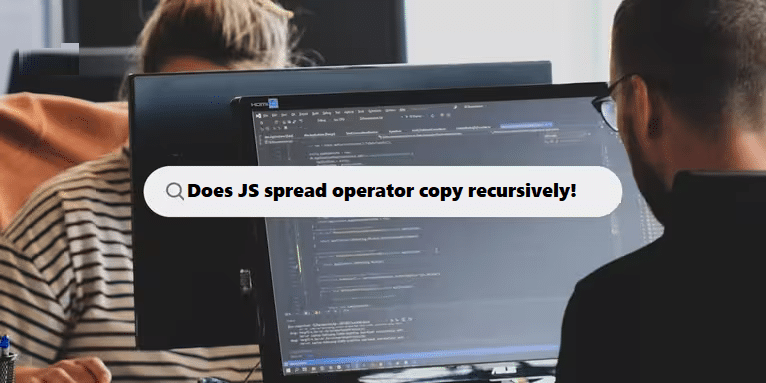No, the JavaScript spread operator (...) does not perform a deep (or recursive) copy of objects or arrays. Instead, it creates a shallow copy. Here’s a breakdown of what that means:
Shallow Copy vs. Deep Copy
- Shallow Copy: A shallow copy of an object or array means that it creates a new object or array, but the properties or elements that are objects themselves are still references to the same objects in memory. If you change a nested object in the copied structure, it will reflect in the original structure.
- Deep Copy: A deep copy means that all levels of the original object or array are copied recursively, meaning that the entire structure is duplicated and modifications to nested objects do not affect the original.
Example
Here’s an example to illustrate this:
#javascript
const original = {
name: 'Alice',
address: {
city: 'Wonderland'
}
};
// Shallow copy using spread operator
const shallowCopy = { ...original };
// Modifying the nested object in the shallow copy
shallowCopy.address.city = 'New City';
console.log(original.address.city); // Output: 'New City'
console.log(shallowCopy.address.city); // Output: 'New City'In this example, changing the city in shallowCopy also changes it in original, demonstrating that the spread operator does not create a deep copy.
How to Create a Deep Copy
To create a deep copy, you can use methods like:
- JSON Methods:
#javascript
const deepCopy = JSON.parse(JSON.stringify(original));Libraries: Use libraries like Lodash, which has a _.cloneDeep method.
#javascript
const _ = require('lodash');
const deepCopy = _.cloneDeep(original);In short, the JavaScript spread operator creates a shallow copy and does not copy objects or arrays recursively. For deep copies, consider using JSON methods or external libraries.
Benefits of Using Coding Filters in Software Development!
Using coding filters brings numerous benefits to software development, such as improved code maintainability, easier debugging, and better performance. By isolating specific logic or conditions, developers can minimize the risk of errors and make their code more modular, readable, and adaptable to changes.




